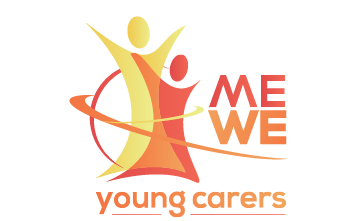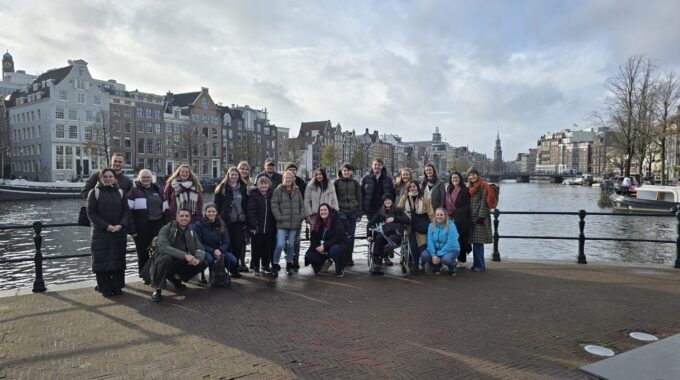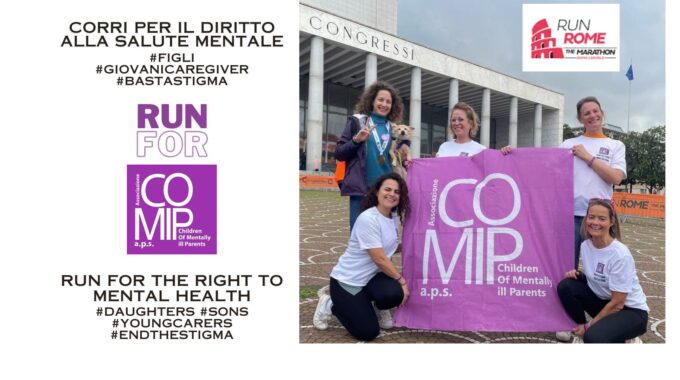
Premiere for education and training in the ME-WE model (post- EU project) to support and empower young carers in Sweden
The Swedish Family Care Competence Centre (Nationellt kompetenscentrum anhöriga, Nka) has recently completed its first major set of training sessions for future group leaders who will implement the ME-WE model in different parts of Sweden as a next step following the formal completion of the EU Horizon 2020 funded research and innovation project “ME-WE” (2018-2021).
– This is a big step in the ongoing work of spreading the model and of both recognizing the existence of young carers in Sweden and also the importance of helping to empower and support young carers by providing them with tools to improve their mental health and well-being, says Elizabeth Hanson, research director at Nka and PI of the earlier EU project.
The ME-WE model is a preventive psychosocial and psychoeducational intervention that consists of group sessions and an app for young carers (young people who provide care to a family member or friend who has a chronic illness, disability, addiction, or any other condition related to a need for care). The model has been developed within the framework of the Horizon 2020 ME-WE project together with young carers themselves, professionals, NGOs and the project consortium from six European countries. The main purpose of the model is to strengthen the resilience and improve the mental health of adolescent young carers.
The intervention includes a total of eight group meetings where trained group leaders and young carers discuss together and carry out exercises that aim to increase their self-esteem and self-confidence. The young carers are given the opportunity to think about what’s meaningful for them and are given tools to be able to handle difficult thoughts, emotions and their situation. The group meetings also give the young people the opportunity to meet others with similar experiences to their own.
The ME-WE model also includes a mobile app. The app is used as a tool during and between group meetings. It contains the exercises used during the group meetings and it gathers information that can be useful for young carers. The app also has a chat feature that allows users to send messages to each other.
Training and guidance for professionals
Today, Nka offers free training and guidance to health and social care practitioners, school staff and representatives from civil society who want to use the ME-WE model. The purpose of the training is for the participants to gain knowledge, support, and tools to be able to use the model and lead the group sessions. The training is held digitally and includes three days with seminars, discussions, reflections, and hands- on exercises and group work.
– The ME-WE group sessions contain different exercises, and the idea is therefore that the participants should be able to try some of these exercises during the training. The participants also get the possibility to ask questions and discuss with each other, says Miriam Svensson, practitioner at Nka and one of the persons who leads the training sessions.
In addition to the training and associated materials, Nka also organizes and facilitates online network meetings where everyone who is or will become a group leader meets on a regular basis to share experiences and learn from each other.
– The idea is that the network meetings will function as a forum where you can exchange experiences and ask questions, says Lennart Magnusson, director of Nka and lead facilitator of the network meetings together with Miriam Svensson, Johanna Häggberg and Linda Lotsengård.
Feedback from the participants
Nka has recently completed the first training sessions following the formal completion of the EU project last year. The training was attended by health and social care practitioners, school staff and representatives from NGOs from different parts of Sweden who are now ready to start using the ME-WE model in their everyday work. The participants have evaluated the training and shared their thoughts about the model.
In summary, the participants are positive about the ME-WE model and the training sessions. Many of them found the training useful for their professional development and believe that the knowledge they have gained during the training will be useful for them in their work. The evaluation also highlights that the participants thought it was fun and educational to try different activities from the ME-WE manual and to meet practitioners and members of NGOs from different parts of the country. Prior to and in between the training sessions, there has been a lot of self-studies and the participants thought that some parts were rather challenging because some of the official training material and resources are in English.
Nka will continue with training sessions
Johanna Häggberg, practitioner at Nka and one of the facilitators of the training sessions, feels that the first set of sessions went well. She now hopes that the participants will start their own ME-WE groups so that the intervention reaches more young carers across the country.
– I felt that the participants were very committed to the ME-WE model and it felt like they really were given a tool that makes it possible for them to use together with young carers. The ME-WE model focuses a lot on how the young carer feels and not so much on the situation at home. I think that is the big advantage of this model and I think that the participants also saw it as something positive, she says.
Nka plans to continue to offer training and guidance and will start new training sessions as expressions of interest come in.
Read more about the EU H2020 funded ME-WE project and the EU project partners at me-we.eu: https://me-we.eu/
Text: Josefine Göransson, Elizabeth Hanson.





